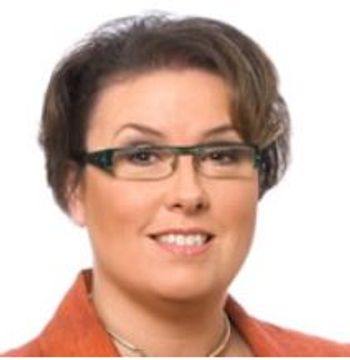
PAINWeek 2017 Keynote: Can Policy Possibly Protect Patients?
Terms such as "opioid McCarthyism" and "witch hunt" were used to express frustration with current opioid regulatory efforts.
“Opioid McCarthyism,” “witch hunt,” and, “denial of coverage is denial of care” were among the phrases used to express anger and frustration with the increasing difficulty of prescribing opioid analgesics, in the keynote presentations at the PAINWeek 2017 meeting in Las Vegas, September 5-9.
Stephen Ziegler, PhD, JD, associate professor emeritus of public policy, Purdue University, Fort Wayne, IN, called for heightened activism and advocacy by pain treatment healthcare professionals. “Speak up,” he urged, “silence implies consent.”
“You can start by emphasizing the need publicly, the need for balanced approaches,” Ziegler said. “Pain treatment and substance abuse are not zero sum games. We need policies that prevent abuse while at the same time ensuring appropriate access.”
“Pain treatment and substance abuse are not zero sum games..."
The rush to enact regulations and policies to address substance abuse by constraining opioid prescribing and availability, and the amplification and simplification of the process by media coverage confounds careful consideration and deliberation, according to Kevin Zacharoff, MD, clinical instructor, SUNY Stony Brook School of Medicine, Stony Brook, NY.
“Scientific evidence (should) dictate clinical practice,” Zacharoff indicated. “Without the debate, without the stigma, without the fear, without the denials (by insurers).”
Without similarly careful deliberation among regulators and law makers, it may be that policies are emerging from confusing and conflating prescription opioid issues with the abuse of illicit opioids and opioid-related substances, suggested Michael Schatman, PhD, adjunct clinical assistant professor, Tufts School of Medicine, Boston, MA.
Schatman examined the often cited approximate of 16,000 prescription opioid deaths annually, posing, “Is this figure accurate? What defines a `prescription opioid death’?” Schatman found that the increase between 2014 to 2015 in overall opioid death rates was largely driven by increases in deaths involving heroin and synthetic opioids, other than methadone.
“Death rates due to heroin increased 20.6%, [and] from synthetic opioids other than methadone by 72.2%,” he said. “Between 2013 and 2014 the death rates for synthetic opioids, excluding methadone, increased by 80%, largely because of increased use and abuse of non-pharmaceutical fentanyl.”
“Between 2013 and 2014 the death rates for synthetic opioids, excluding methadone, increased by 80%, largely because of increased use and abuse of non-pharmaceutical fentanyl.”
In addition to the increasing deaths from “bootleg fentanyl,” which Schatman also described as the “Hamburger Helper” for heroin users, it appears that many of the deaths associated with prescription opioids occur in the presence of a toxic polypharmacy combination. He cited a recent study of drug overdose mortality surveillance that identified the presence of alcohol in 44% of cases, and in 52% of those in which an opioid was also present.
“The average number of drugs detected in toxicology was six,” Schatman declared. “Yet, when a prescription opioid is detected, it goes down as a `prescription opioid death’. So, do we have a `prescription opioid problem” or a polypharmacy problem?”
The consequences of basing policies on flawed data, Schatman indicated, not only include physicians practicing in a climate of fear of sanction, but pain patients suffering unnecessarily. “Patients are very dissatisfied by the lack of options for treatment,” he said. “They feel that they’re treated like drug addicts."
[[{"type":"media","view_mode":"media_crop","fid":"63121","attributes":{"alt":"","class":"media-image media-image-right","id":"media_crop_4223040727691","media_crop_h":"0","media_crop_image_style":"-1","media_crop_instance":"8048","media_crop_rotate":"0","media_crop_scale_h":"0","media_crop_scale_w":"0","media_crop_w":"0","media_crop_x":"0","media_crop_y":"0","style":"height: 209px; width: 259px; float: right;","title":"©Sjstudio6/Shutterstock.com","typeof":"foaf:Image"}}]]Policies based on flawed data are also promulgating “opiophobia” and “oligoanalgesia,” Schatman indicated, which has taken society in a different direction than when pain relief was considered a fundamental human right.
Schatman cited Mark Twain in his concluding remarks: “There are lies, there are damn lies, and there are statistics.”
Ziegler closed the keynote session by again encouraging attendees to participate in the political process to influence appropriate policies. These should include, he argued, reimbursement of alternative, multimodal and integrated approaches to pain management, and funding a national pain strategy.
He urged those attending the session to serve, or to nominate representatives to serve on the Pain Management Best Practices Inter-Agency Task Force now being constituted at the Health and Human Services Department, with a nomination deadline of September 27.
“If you don’t have a seat at the table, you’re going to be lunch,” Ziegler warned.
Image:©Sjstudio6/Shutterstock.com
Newsletter
Enhance your clinical practice with the Patient Care newsletter, offering the latest evidence-based guidelines, diagnostic insights, and treatment strategies for primary care physicians.

































































































































